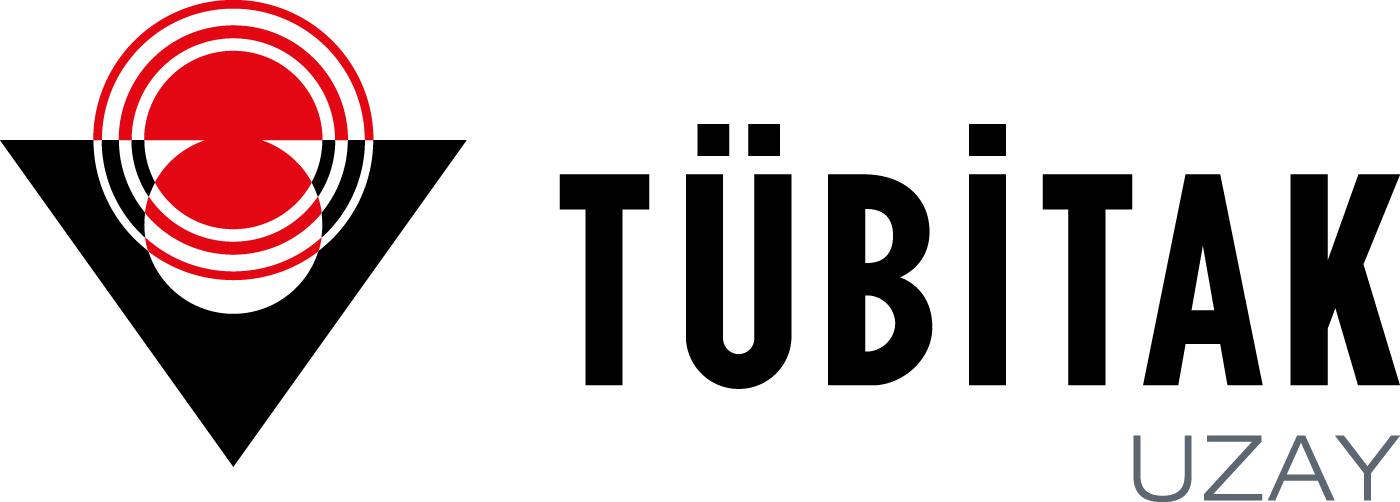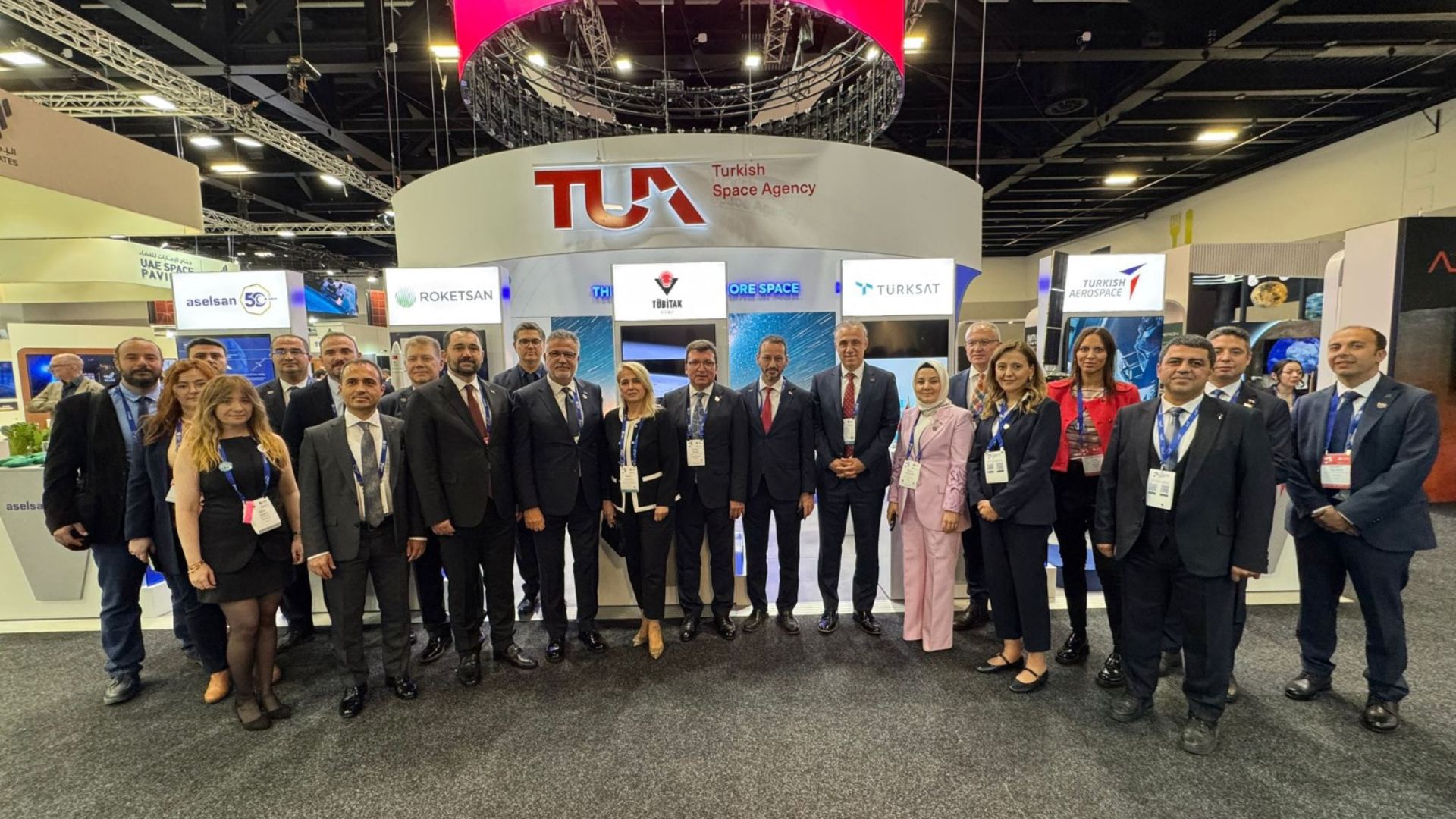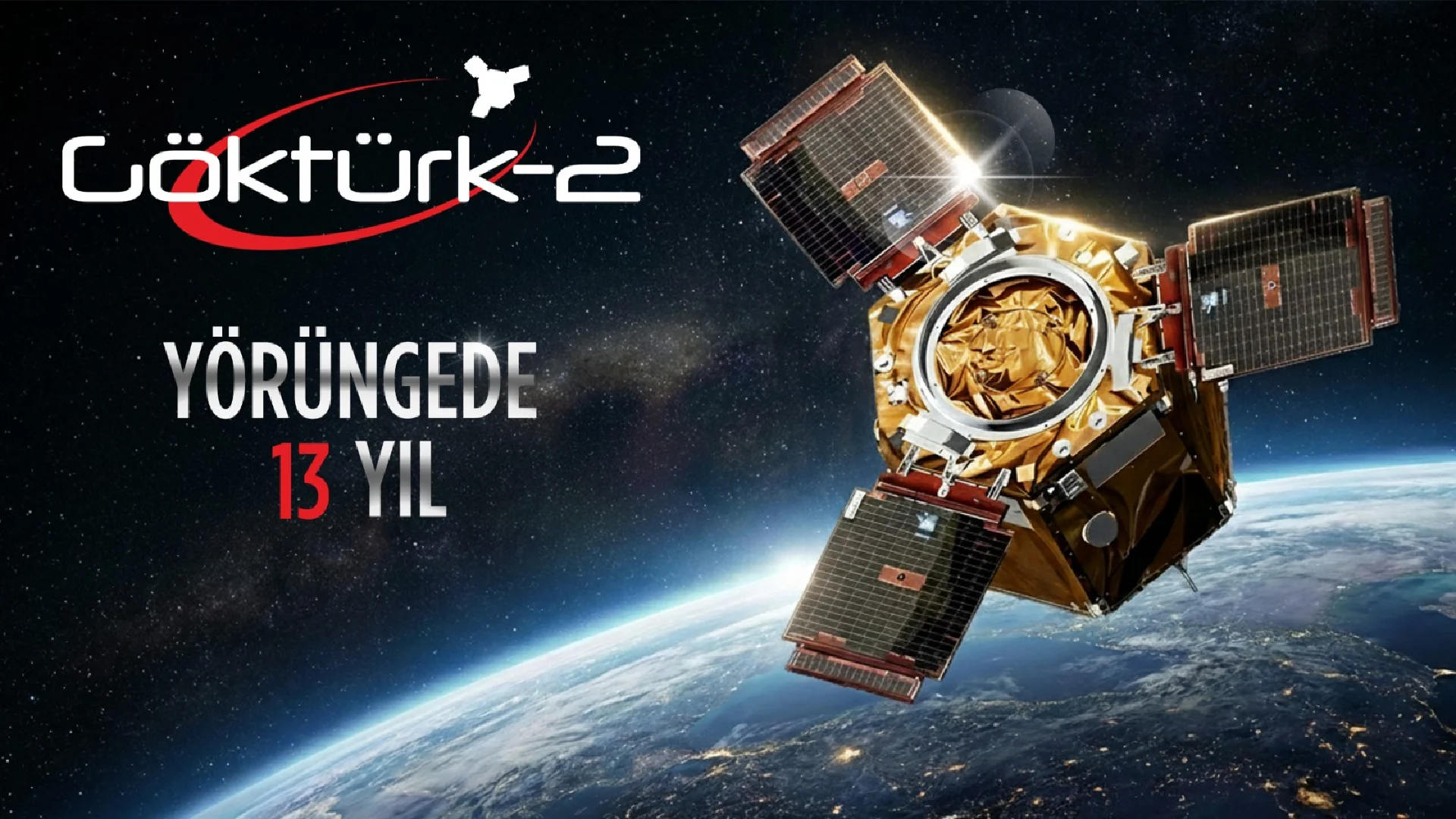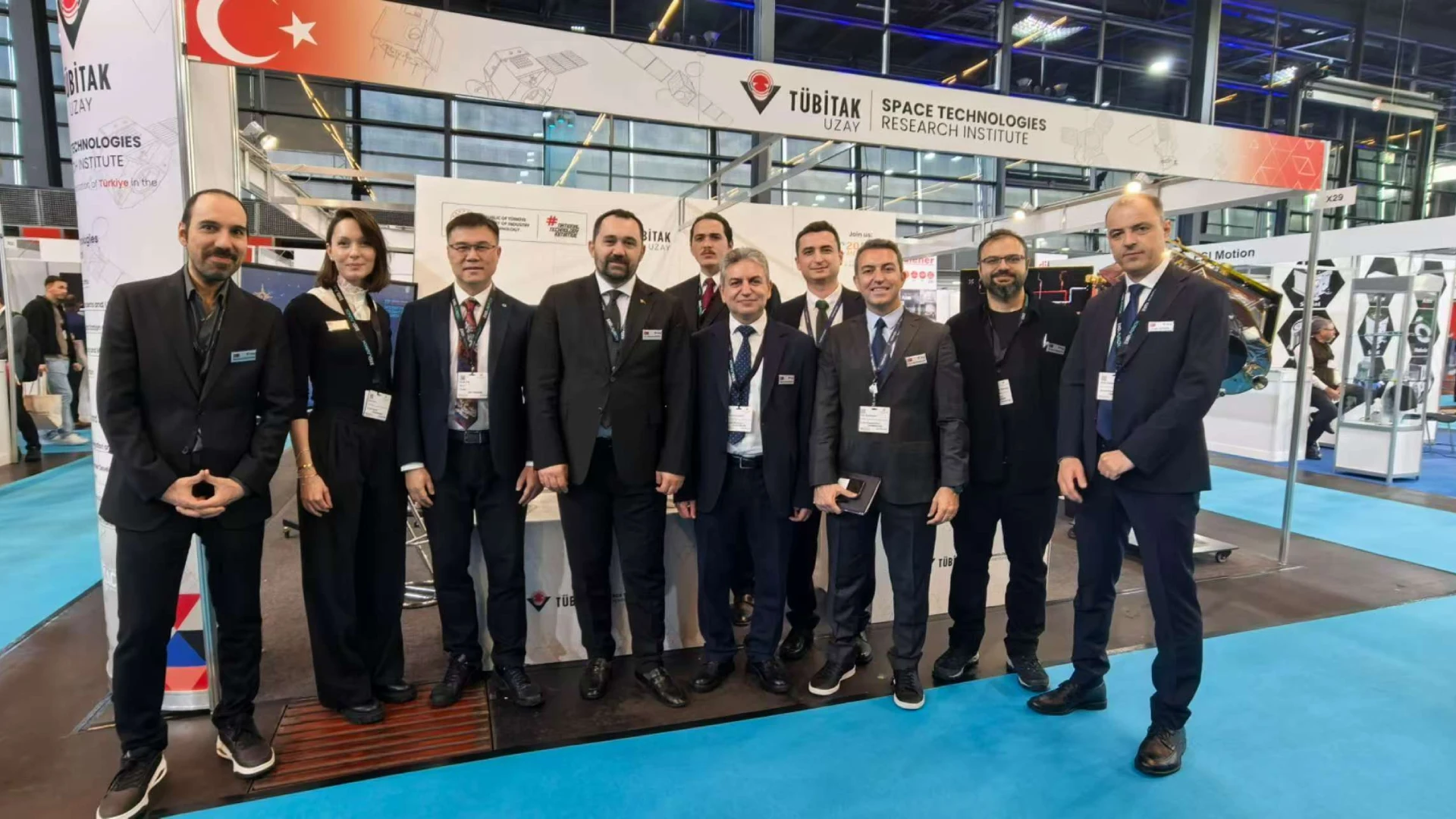Held in Sydney, Australia on 29 September – 3 October 2025, the 76th International Astronautical Congress (IAC 2025) brought together space agencies, researchers, industry organizations, and academics from around the world.
Participating in this prestigious event at the Türkiye Pavilion, TÜBİTAK UZAY showcased Türkiye’s engineering capabilities, technological sophistication, and national space vision to international attendees.
The Türkiye Pavilion attracted strong interest throughout the five-day event. Visitors had the opportunity to closely examine Türkiye’s latest advancements in space technologies. At the TÜBİTAK UZAY booth, projects such as IMECE, TÜRKSAT 6A, and the Lunar Research Program were presented, alongside comprehensive information on domestically developed satellite subsystems, mission control software, and assembly, integration, and test (AIT) capabilities.
Türkiye’s first astronauts, Alper Gezeravcı and Tuva Cihangir Atasever, also took part in the event. They engaged with international participants and shared insights from Türkiye’s space journey.
Throughout the Congress, numerous bilateral meetings were held with representatives from space agencies, research institutions, the commercial space sector, and academia, and new collaboration opportunities were explored. These meetings proved productive in promoting Türkiye’s capacity in the space domain at the international level and in laying the groundwork for future joint projects. In addition, four papers authored by TÜBİTAK UZAY researchers and accepted to the Congress were delivered as technical presentations to the international scientific community.
The four papers presented this year clearly demonstrated TÜBİTAK UZAY’s strength across the continuum of technology, policy, and law: Medeni Soysal showed—through historical and contemporary evidence—how the political economy dynamics of globalization are extending into space, with space-based technologies forming the new infrastructure that carries capitalist expansion beyond Earth. Emphasizing that rising satellite density increases collision and space debris risks while current international rules remain operationally insufficient, Seda Aydın proposed a comprehensive STM/space sustainability approach: orbit differentiated debris removal rules, fragmentation and re entry standards, limiting short lived missions to altitudes below 300 km, and an international “space tax + sustainability fund”. Mustafa Türkmenoğlu presented the design and commissioning of a new test infrastructure for electric propulsion thrusters, built to enable long duration, high precision measurements under thermal vacuum conditions—improving data accuracy and accelerating R&D processes. Finally, İlksen Burat shared test findings on a thruster currently in operation on an on orbit satellite, demonstrating the end to end applicability of these capabilities.
Within the scope of the Congress, promotional activities for the 77th IAC to be held in Antalya in 2026 were also shared with participants. The vision for Antalya’s hosting was presented to the international space community at the Türkiye Pavilion.





